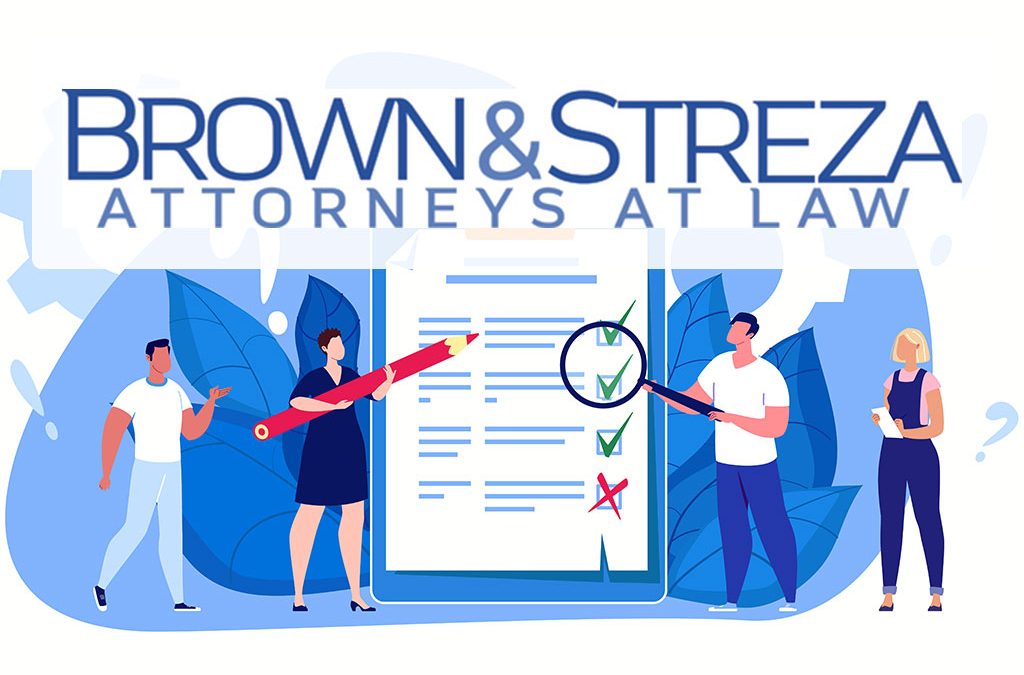By John C. Peiffer II, Brown & Streza LLP
Designing Your Family’s Philanthropy: DAFs, Private Foundations, and Supporting Organizations
A “school of virtue” – that’s how entrepreneur and philanthropist Frank Hanna describes the role that philanthropy can play in a family that collaborates in charitable giving. If you’ll permit us to stick with the school metaphor, this white paper focuses on designs for building the campus on which your family’s teaching and learning can take place.
Specifically, we will start by briefly describing three different “school campus” designs:
Then, we will compare these designs on the basis of three criteria:
- Deductibility,
- Complexity, and
- Control.
Finally, we will consider a few of the many reasons why a family might choose one design over another.
Potential Designs for your “School Campus”
1. Donor Advised Funds
What is a Donor Advised Fund (“DAF”)?
A DAF is a charitable giving account established at a DAF sponsor (which has to be a public charity). The DAF itself is not a standalone charitable organization; the DAF sponsor (described below) is the standalone charitable organization that is exempt from federal income tax under Section 501(c)(3) of the Internal Revenue Code (“Code”) and responsible for ongoing administration and compliance. Learn more about Donor Advised Funds.
2. Private Foundations
What is a Private Foundation (“PF”)?
A PF is a standalone charitable organization (typically, a corporation or charitable trust; depending on your state, perhaps a limited liability company) whose exemption from federal income tax under Section 501(c)(3) of the Code must be recognized by the IRS. There are different types of PFs; for our purposes, the discussion that follows will focus exclusively on what are known as private non-operating (i.e., grant-making) foundations. Find out which type of Private Foundation (“PF”) is right for you.
3. Supporting Organizations
What is a Supporting Organization (“SO”)?
A SO is a separate charitable organization (typically, a corporation or charitable trust; depending on your state, perhaps a limited liability company) whose exemption from federal income tax under Section 501(c)(3) of the Code must be recognized by the IRS. There are three different types of SOs; for our purposes, the discussion that follows will focus exclusively on what are called type I SOs, which are “operated, supervised, or controlled” by one or more public charities. Ready to Learn More? Continue Reading about Learn more about.
Final Thoughts
Which campus design is best to house your “school of virtue”? For many, the DAF can be a great way to start because of its ease, but that won’t necessarily be the right answer for your family. Each situation must be evaluated separately.
For example, if you wish to contribute some of your operating business to be held by your charity for ongoing cash flow, neither a DAF nor a PF will work due to certain applicable tax rules, so you may want to form a type I SO.
If you want to contribute highly-appreciated real estate that has zero basis after years of depreciation before a sale, a PF may not make sense since you won’t get a deduction. But if you don’t want others overseeing your philanthropy in any way and only plan to contribute cash and publicly-traded stock, a PF may be the way to go.
If you want to make periodic contributions of cash and publicly-traded securities and don’t want to complicate your life with additional board meetings and administration, the DAF may be the right fit.
At most schools, campuses change over time, and the same can be true for your philanthropic design. A structure may perfectly fit your needs during one season of your family’s life; then, over time, your needs or desires may change, and another structure (or multiple structures used concurrently, such as a DAF along with a PF or type I SO) may better serve your family’s philanthropic goals.

About Brown and Streza
Brown and Streza LLP is a law firm providing integrated legal services in tax, estate, trust, real estate, business, business succession planning, and charitable planning, including representing non-profits and religious organizations. Located in Orange County, California, we serve families, businesses, entrepreneurs, philanthropists, and charitable organizations, focusing on helping closely-held businesses and their owners achieve their goals. For more information, please visit our website.
We hope you've enjoyed this article. While you're here, we have a small favor to ask...
As we prepare for what promises to be a pivotal year for America, we're asking you to consider becoming a member.
The need for fact-based reporting of issues important to family owned businesses and protecting a lifetime of savings has never been greater. Now more than ever, successful families and family owned businesses are under fire. That's why Family Enterprise USA is passionately working to increase the awareness of issues important to family owned businesses built on hard work, while continuing to strengthen our presence on Capitol Hill. The issues we fight for or against with Congress in Washington DC include high income tax rates, possible elimination of valuation discounts, increase in capital gains tax, enactment of a wealth tax, and the continued burden of the gift tax, estate tax and generation skipping tax.
Family Enterprise USA promotes generationally owned family business creation, growth, viability, and sustainability by advocating for family businesses and their lifetime of savings with Congress in Washington DC. Since 2007, Family Enterprise USA has represented and celebrated all sizes, professions and industries of family-owned enterprises and multi-generational employers. It is a bi-partisan 501.c3 organization. Family foundations can donate.
#incometax #CapitalGainsTax #R&DExpensing #DontPunishSuccess #GrantorTrusts #StepUpinBasis #likeKindExchanges #AcceleratedDepreciation #EstateTax #Deathtax #wealthtax #taxLegislation #CongressionalCaucus #incometaxrates #repealestatetax #AdvocatingForFamilyBusinesses #FamilyOwnedBusiness #WomenOwnedBusiness @FamilyEnterpriseUSA #FamilyEnterpriseUSA #FEUSA

